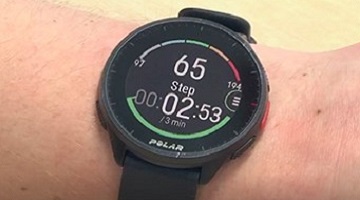Wearable tech can double time we commit to exercise
Using wearable fitness technology can more than double your chances of sticking to a workout plan, according to exercise scientists in the UK.
In trials, an impressive 79% of volunteers kept up their exercise regime for six months when supported by biometric feedback from a Fitbit or Garmin compared to just 34% who had personal trainer support but no technology.
And more than half (52%) were exercising for 150 minutes or more per week after six months compared to only 17% in a control group.
The team from Liverpool John Moores University's School of Sport and Exercise Sciences and the University of Birmingham said the trial of people with type-2 diabetes underlined the difficulty of prescribing exercise or lifestyle changes without well-planned back up for patients.
“The gap is considerable between those who are guided by data and those who are not,” explained Dr Matt Cocks, lead investigator and a Reader in Exercise Physiology at LJMU.
“You can hire a PT or be guided by a healthcare professional but unless they can see what you are really doing and how you are performing at home, it’s a bit of a leap of faith.”
The study, called MOTIVATE, which is funded by the Medical Research Council and the Canadian Institute of Health Research, recruited 120 (60 in MOTIVATE and 60 in control) men and women aged 40-75 years for guided home gym.
Over a six-month period, it compared their adherence to a personalised programme of exercise and biofeedback with that of a group with recommended exercise but no feedback.
The supported group received a smartwatch which contained a pre-agreed exercise programme, which guides people on walks, runs, cycles or workouts, with such advice as how to warm up, the level of intensity, speed etc.
The watch provides biofeedback such as heart-rate, to the users and a remote ‘controller’ –which could be a PT, physio, GP or specialist medic.

“It’s a bit like having a PT on your wrist,” explained Matt. “The beauty of it is the immediacy of feedback. If someone struggled to meet their target, we spotted it and changed the regime or offered more encouragement.
“People might find they hate running or they might do no exercise on an allotted day because they had an exhausting day at work. It’s all about flexibility and unless your PT can follow your progress closely, it can all fall apart and people quit.”
The results are published today (March 27, 2025) in the journal BMJ Open, 10.1136/bmjopen-2024-092260.
Dr Katie Hesketh, an exercise physiologist at the University of Birmingham, said: “In our feasibility study, participants were 10 times more likely to start exercising and maintained increased physical activity levels at 6 and 12 months. This clearly highlights the potential for this intervention to drive lasting behaviour change."
Psychologist Dr Laura Thomas, who was not involved in the study, said: “Home-based exercise can be difficult to sustain, partly due to a person’s confidence about what they should be doing, or because it’s easy to slip into bad habits when exercising alone.
“When you have technology constantly reassuring you’re doing it correctly, and consistently pushing you, it can be enough to keep you on track, as this study shows.”



